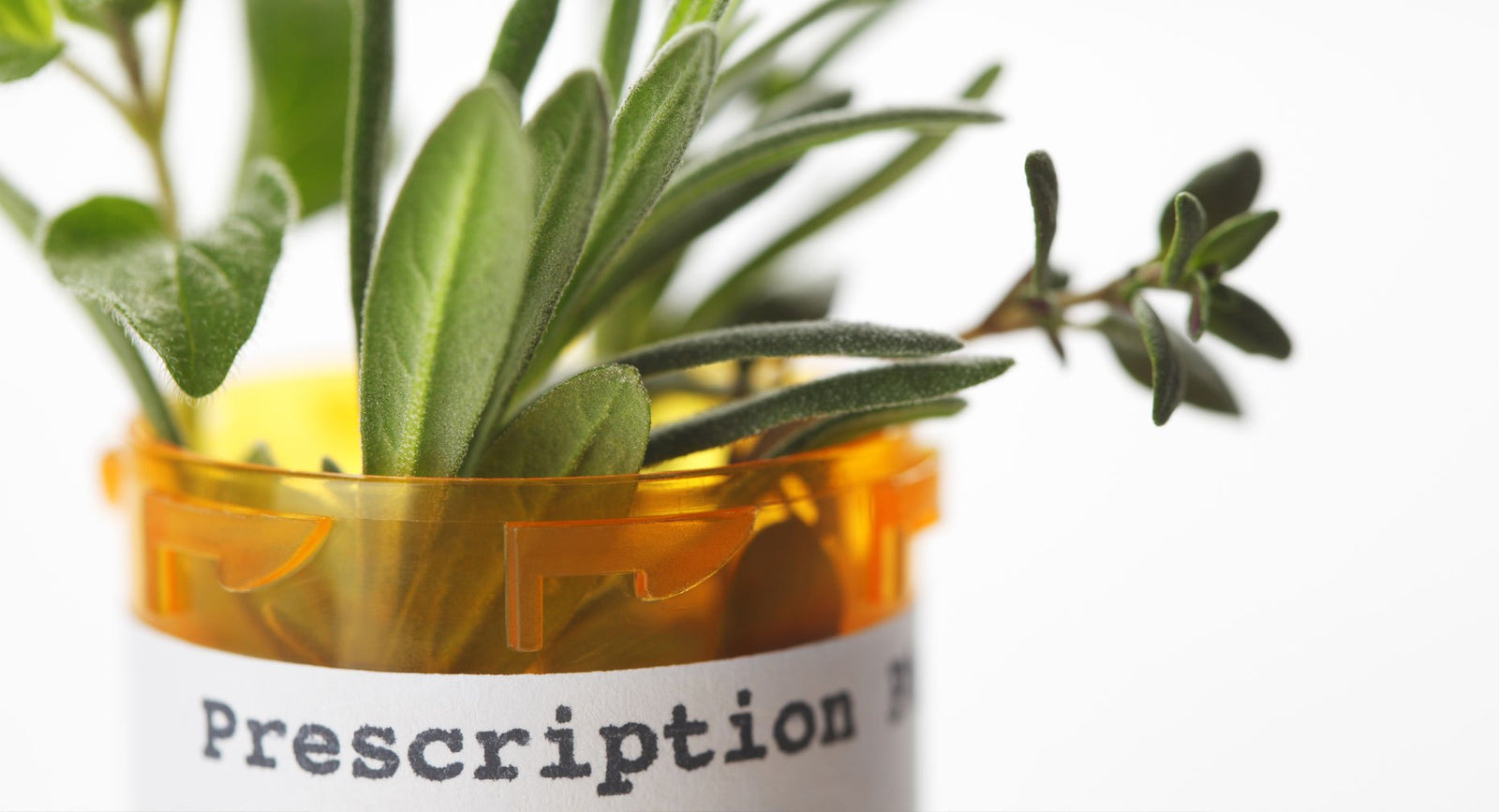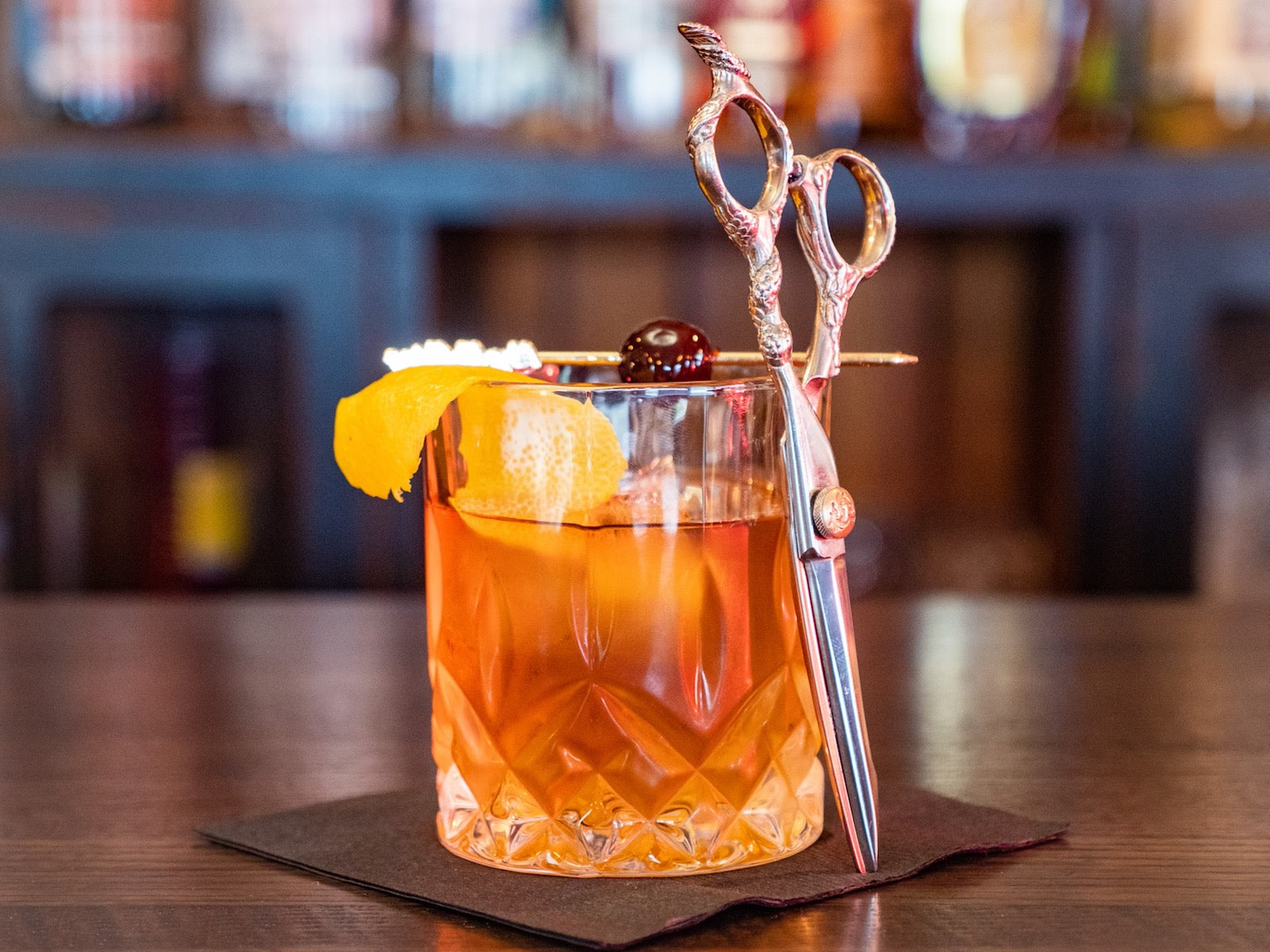Your Cart is Empty
free shipping on all orders over $25 + free returns & exchanges *

Beard growth. We bearded brethren want it. At ManBasics we have heard a lot of claims that Minoxidil works on beards to grow beard hair as well as scalp hair. But, is Minoxidil beard growth a myth? We know that beard hair is not the same as head hair, so we were curious about the claims and decided to turn to Dr. Joel Rice. Dr. Rice holds degrees from the Medicine National University of Singapore, JHU, and Harvard. An avid beard lover himself, he is the perfect partner to lend some insight into this complicated subject. Dr. Rice has also lent his expertise to our blog post about men's beards being more filthy than a dog.
Minoxidil originally was developed in the 1970s for the treatment of hypertension (elevated blood pressure). Minoxidil was observed to carry a specific side-effect; hypertrichosis (abnormal hair growth) [1]. Minoxidil’s intricate mechanisms of action have been researched by various groups globally. Indeed, Minoxidil is now marketed commercially as Rogaine/Regaine and is readily available as an over-the-counter topical solution or lotion for the reversal of androgenetic alopecia and as a cure-all for sparse beard growth. This article will seek to delineate these mechanisms, expound upon the side-effects of this drug as well as explore alternative natural remedies to achieve robust and healthy beard growth.
The chemical derivative of minoxidil is 2,4-diamino-6 piperidino-pyrimidine-3-oxide. This drug opens potassium channels on smooth muscle cells which comprise the arteries. This influx of potassium ions into the smooth muscle cells causes the arteries to dilate, thereby increasing blood flow [2]. This explains why Minoxidil was first marketed as an anti-hypertensive drug in an attempt to reduce mean arterial blood pressure.
However, the follicular effects of Minoxidil are dependent on its active metabolic derivate – minoxidil sulfate. This derivate is produced by a sulfotransferase enzyme that is present in the follicle itself. The amount of this enzyme varies from individual to individual. Intuitively, a reduced level of this enzyme implies that the potency of Minoxidil will be attenuated and vice-versa. This phenomenon explains why certain individuals respond very well to Minoxidil whereas some others do not.
Minoxidil sulfate causes the hair follicle to stay in the anagen phase (the state in which hairs grow) for a longer period of time. The amount of time a facial hair follicle remains in the anagen phase is variable. Body and facial hair have a lower anagen phase than scalp hair (estimated to be 4 to 6 years). Researchers have postulated that this is a direct effect of Minoxidil’s vasodilatory effects on the microcirculation supplying the hair follicles, which improves blood flow to them [3].
So, now that we know how Minoxidil works – let’s take a look at up-to-date evidence that boasts of its performance. Most studies in the literature have assessed the efficacy of Minoxidil in the treatment of androgenetic alopecia. This is one of the most prevalent skin conditions affecting adults, characterized by progressive hair loss in the central areas of the scalp [4]. Indeed, a randomized, placebo-controlled, double-blind study conducted in 2018 showed that Minoxidil was safe and effective in stimulating scalp hair growth in men with androgenetic alopecia [5].
A randomized, double-blinded, placebo-controlled Chinese study in 2016 studied 46 men who were aged between 20 to 60 years old. They were instructed to apply just 0.5ml of Minoxidil on their chin and jaw-line twice daily – a regimen that is consistent with the manufacturer’s instructions for use. Over 16 weeks, the men were assessed quarterly. Hair counts and diameters were measured, in addition to photographs that were subjectively scored by physicians.
The results showed that the mean change in hair count significantly increased in the Minoxidil group as opposed to the placebo (dummy) group. However, no change in hair diameter was found between the two groups [6]. A comprehensive search of the literature reveals that this is the only study so far to have evaluated the performance of Minoxidil in facial hair growth.
As disappointing as this is, the Internet is rife with anecdotal reports of success in the form of minoxidil beard before and after photos, ranging from minoxidil results after 2 months to 1 year. In terms of absolute science, how long does minoxidil take to work appears to be based more on anecdote than scientific results.
As much as there is an abundance of anecdotal reports of Minoxidil’s success in regard to facial hair growth, rogaine effectiveness must be interpreted with caution. After all, many proponents of Minoxidil on popular social media websites such as Youtube, Instagram, and Reddit may have personal agendas in promoting this product (i.e. paid sponsorships). There may be under-reporting of adverse long term side effects of rogaine use and only positive anecdotes may be published (this is known as reporting bias).
Hence, we must do our due diligence and refer to the science to look for the adverse effects of Minoxidil. The evidence reveals that Minoxidil is generally safe. However, there are some side-effects that users must be aware of. First and foremost, is the phenomenon of telogen effluvium. This refers to the shedding of existing hairs within the first 1 to 2 weeks of topical application. This occurs as a result of Minoxidil acting on hairs that are already in the telogen phase. This is a temporary side-effect, as the follicles will begin a healthier anagen phase subsequently. However, long-term use of Minoxidil is required to benefit from this.
Secondary side effects include but are not limited to dermatitis (inflammation of the skin, leading to reddening and itching), palpitations and allergic skin reactions [6]. Furthermore, commercial solutions of Minoxidil contain propylene glycol, which is conventionally associated with itching, redness, and drying of the skin [3].
In view of the side-effects of Minoxidil, as well as the long-term use of the drug to continue benefitting from it, it is prudent to critically analyze the literature for alternative natural remedies for beard enhancement. Of these, we will be looking at Peppermint and Rosemary essential oils. These comprise the core ingredients of our Manbasics Mojito Beard Oil Blend.
Peppermint (Mentha piperita)has been well regarded for its therapeutic properties, of which there are many. Relief of gas and bloatedness, induction of relaxation and stress relief, as well as a skin conditioning agent. These benefits can be attributed to menthol, which is the principal ingredient of peppermint essential oil [7]. Menthol has been extensively studied in view of its anti-inflammatory, antioxidant and antimicrobial potency [8]. How has peppermint (and specifically, menthol) performed in regard to hair growth?

A recent study published in 2014 sought to evaluate exactly that. Researchers randomized rodents into 4 separate groups – saline (normal saltwater), Minoxidil, Jojoba essential oil, and Peppermint essential oil. The rodents were evaluated for hair growth after 4 weeks. Peppermint oil was shown to grow hair more rapidly from week 2 onwards, and at week 3 it rapidly overtook saline, jojoba oil, and even minoxidil. Indeed, at the end of the study (week 4), the researchers observed that peppermint oil resulted in hair growthat a staggering 92%, as opposed to Minoxidil which resulted in 55% hair growth [9]. This hair growth was measured in terms of dermal thickness, number of hair follicles, and even the depth of the follicles.
Rosemary (Rosmarinus officinalis)has also been traditionally lauded for its antioxidant, anti-inflammatory and even anti-tumor effects [10, 11]. While there is a scarcity of studies looking to evaluate its potency regarding facial hair growth, the literature is generally supportive of its anti-androgenic effects in androgenetic alopecia (hair loss). A study in 2013 showed that Rosemary essential oil improved hair growth in mice, by inhibiting 5α-reductase. 5a-reductase is an enzyme that has been implicated in the development of hair loss [12].

Another study conducted in 2015 shed more light on the mechanisms of action underpinning the hair growth seen with topical Rosemary essential oil application. This randomized comparative trial evaluated the effects of Rosemary essential oil vis-à-vis Minoxidil in patients experiencing hair loss. After 6 months, the researchers observed that both groups experienced hair growth at 3 months and 6 months.
While these findings don’t suggest that Rosemary essential oil was superior to Minoxidil, it is interesting to note that a natural remedy performed just as well as a commercial pharmacological drug. Furthermore, the researchers noted that the patients in the Minoxidil group experienced scalp itching to a greater degree and at a higher frequency at both timestamps [13].
The evidence so far supports the use of Minoxidil in promoting facial hair growth, albeit with side-effects that are primarily skin related. However, the main criticism of Minoxidil is in the dependence it cultivates. The research regarding its mechanisms of action suggests that continued use of Minoxidil is necessary to benefit from sustained facial hair growth. This can be costly, not just in financial terms, but also in regard to the skin-related side effects it confers. Itching, greasiness, dryness, and allergic contact dermatitis are all potential side effects. Furthermore, because of its vasodilatory effects, patients with heart disease, thyroid dysfunction or suffer from labile or chronically low blood-pressure should exercise caution when using it. These patients should definitely consult their physicians prior to use. Any sudden drop in blood pressure in this subset of patients can lead to an inadequate perfusion of vital organs.
Peppermint oil has been shown to be definitively superior to Minoxidil in achieving hair growth – in so far as animal studies are concerned. Rosemary oil has shown that it is more than equal to Minoxidil. Additionally, these 2 compounds confer a myriad of additional wholesome benefits in view of their combined antioxidant, anti-inflammatory, and anti-microbial effects. In other words, the Manbasics Mojito Blend will not only promote beard growth but also maintain beard hygiene and the health of the underlying skin.
1. Zappacosta, A.R., Reversal of baldness in patient receiving minoxidil for hypertension. N Engl J Med, 1980. 303(25): p. 1480-1.
2. Haddy, F.J., P.M. Vanhoutte, and M. Feletou, Role of potassium in regulating blood flow and blood pressure. Am J Physiol Regul Integr Comp Physiol, 2006. 290(3): p. R546-52.
3. Rossi, A., et al., Minoxidil use in dermatology, side effects and recent patents. Recent Pat Inflamm Allergy Drug Discov, 2012. 6(2): p. 130-6.
4. Varothai, S. and W.F. Bergfeld, Androgenetic alopecia: an evidence-based treatment update. Am J Clin Dermatol, 2014. 15(3): p. 217-30.
5. Blume-Peytavi, U., et al., Efficacy and safety of a new 5% minoxidil formulation in male androgenetic alopecia: A randomized, placebo-controlled, double-blind, noninferiority study. J Cosmet Dermatol, 2019. 18(1): p. 215-220.
6. Ingprasert, S., et al., Efficacy and safety of minoxidil 3% lotion for beard enhancement: A randomized, double-masked, placebo-controlled study. J Dermatol, 2016. 43(8): p. 968-9.
7. Hills, J.M. and P.I. Aaronson, The mechanism of action of peppermint oil on gastrointestinal smooth muscle. An analysis using patch clamp electrophysiology and isolated tissue pharmacology in rabbit and guinea pig. Gastroenterology, 1991. 101(1): p. 55-65.
8. Comar, K.M. and D.F. Kirby, Herbal remedies in gastroenterology. J Clin Gastroenterol, 2005. 39(6): p. 457-68.
9. Oh, J.Y., M.A. Park, and Y.C. Kim, Peppermint Oil Promotes Hair Growth without Toxic Signs. Toxicological research, 2014. 30(4): p. 297-304.
10. Altinier, G., et al., Characterization of topical antiinflammatory compounds in Rosmarinus officinalis L. J Agric Food Chem, 2007. 55(5): p. 1718-23.
11. Bernardes, W.A., et al., Antibacterial activity of the essential oil from Rosmarinus officinalis and its major components against oral pathogens. Z Naturforsch C, 2010. 65(9-10): p. 588-93.
12. Murata, K., et al., Promotion of hair growth by Rosmarinus officinalis leaf extract. Phytother Res, 2013. 27(2): p. 212-7.
13. Panahi, Y., et al., Rosemary oil vs minoxidil 2% for the treatment of androgenetic alopecia: a randomized comparative trial. Skinmed, 2015. 13(1): p. 15-21.
Comments will be approved before showing up.
